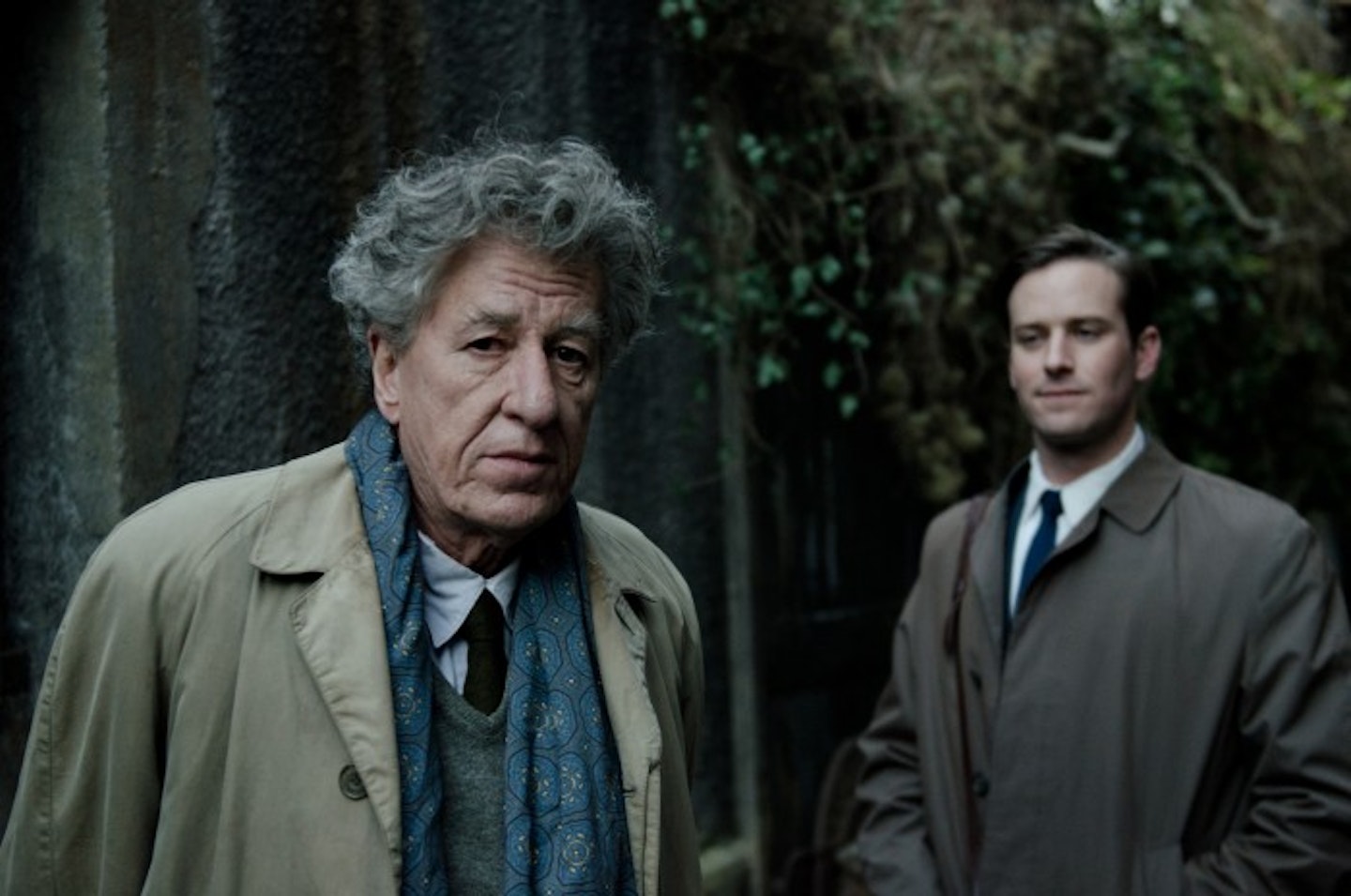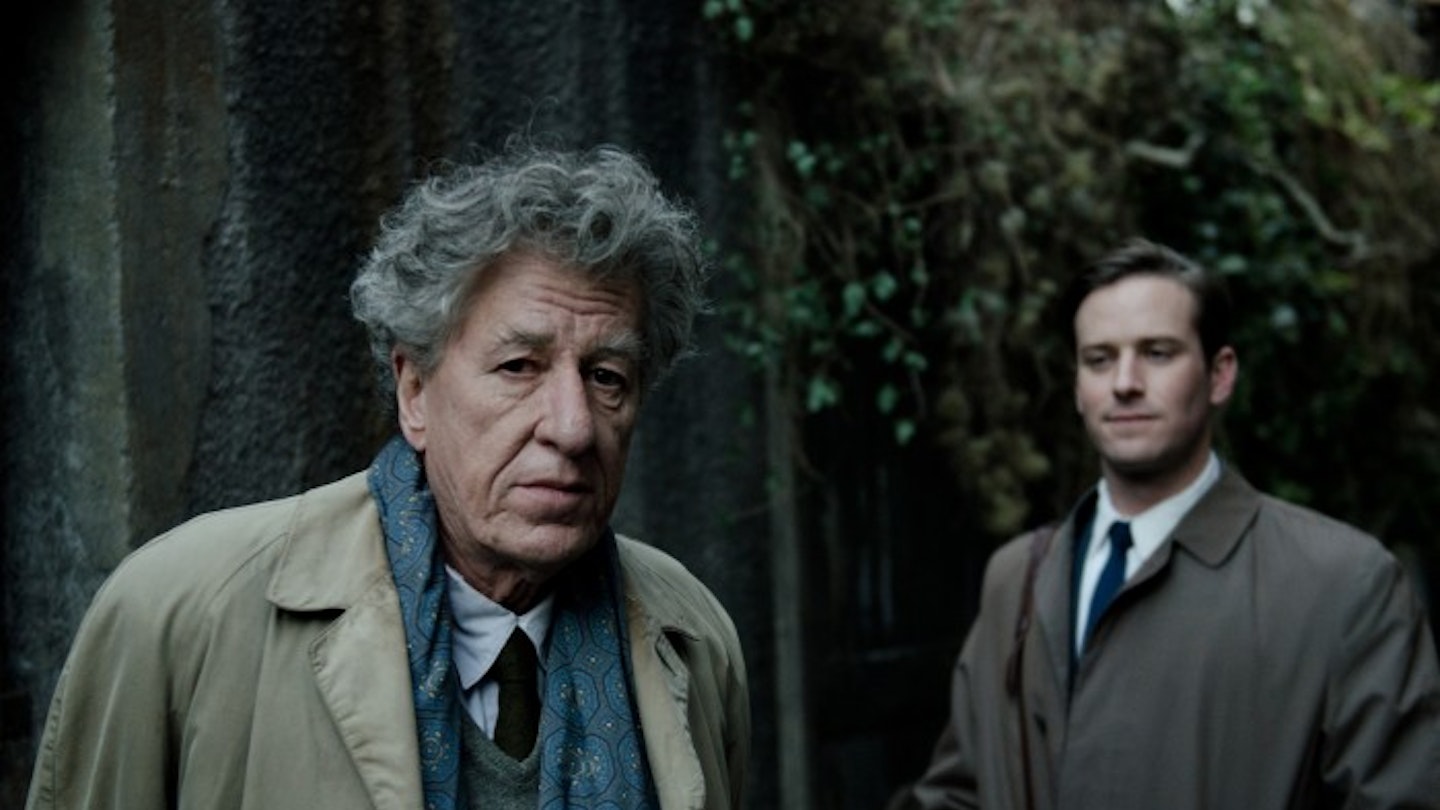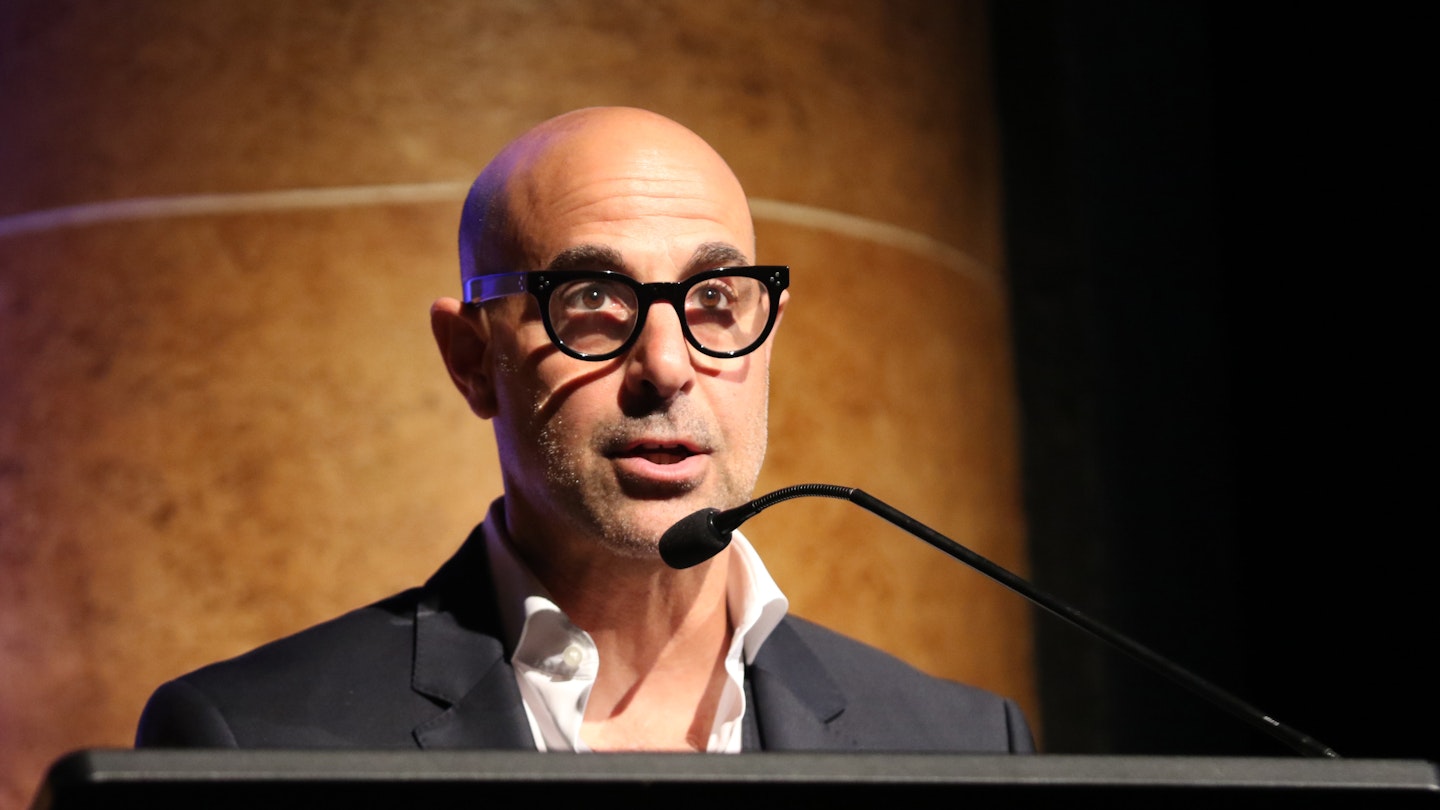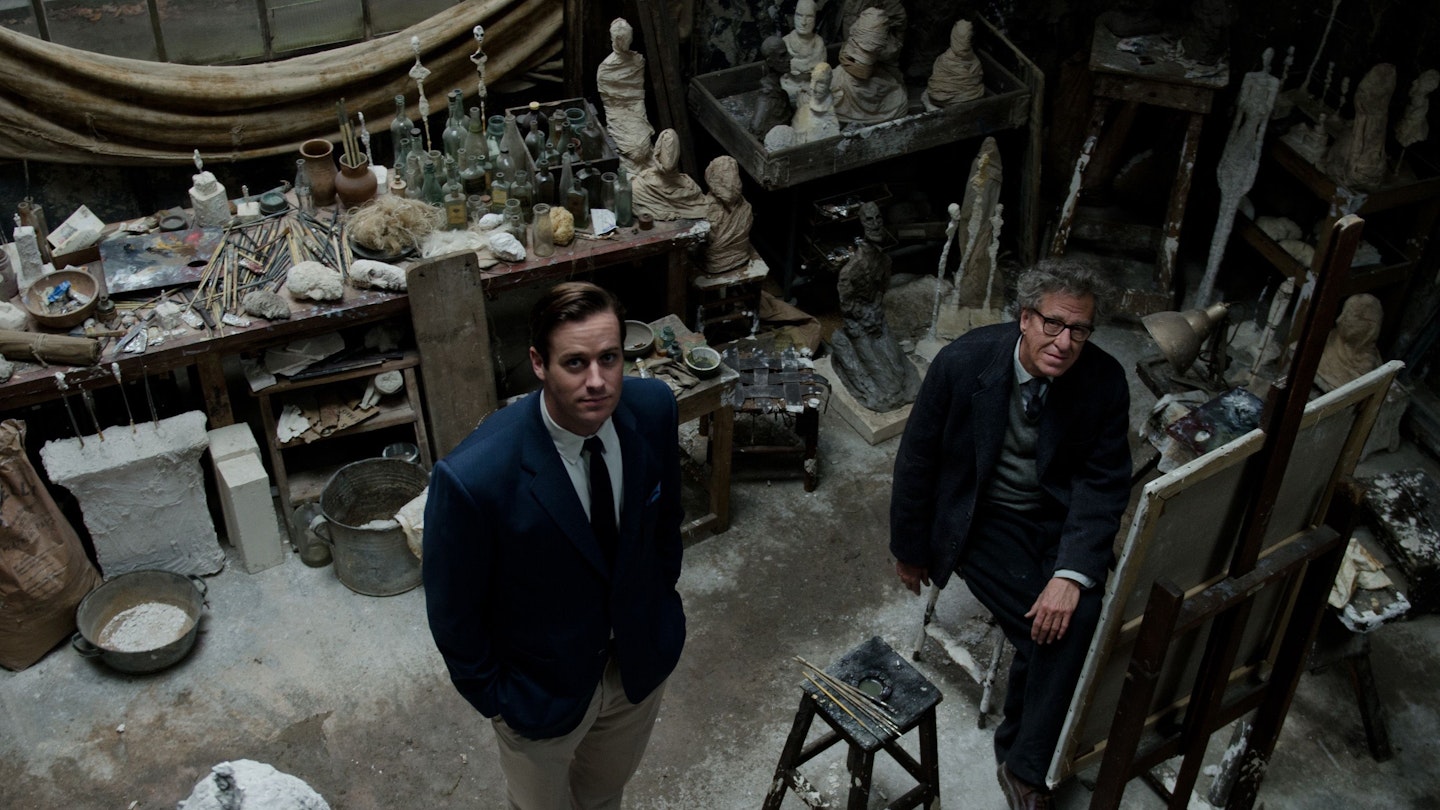Movies about artists can be a dicey proposition. Sometimes they work — Love Is The Devil gives you insights into Francis Bacon no academic text could — but more often you get Anthony Hopkins bellowing his way through Surviving Picasso. Maybe there’s something about drawing too direct a line from the work to the artist that feels reductive on film. Tellingly, John Maybury’s Bacon-opic couldn’t show any of the paintings, so was forced to be creative.
A mature and wise drama about the cost and benefits of creativity.
Final Portrait elegantly dodges the ‘life plus trauma plus easel equals art’ trap by looking at French painter Alberto Giacometti (Rush) through specs that are anything but rose-tinted, and by focusing on the creation of one painting, the actual content of which is incidental. Instead, Stanley Tucci — here directing for the fifth time — brings an actor’s understanding of creative insecurity to this biopic, Giacometti constantly disparaging his own talent, wiping out days’ worth of work to start again and burning his old drawings.
Instead of some idealised view of art as some mystical alchemy, Tucci is far more interested in the conditions that lead to creativity, and the personality that creates them. This version of Giacometti lives in a kind of barely organised chaos, neglecting his wife (a subtle Sylvie Testud) while openly doting on his prostitute lover (Poésy, so vivacious here she would have Nouvelle Vague directors chewing their chapeaux).

On some level, he seems to know that satisfaction and contentment are the enemies of art; this isn’t some silly Silicon Valley view of creativity as play, but neither is it about some notion of art as therapy. Giacometti burns happiness and contentment as fuel for his work, and the subtle ways he consciously or unconsciously structures his environment for his art to flourish at the expense of those around him are fascinating. Only Tony Shalhoub’s Diego, Giacometti’s assistant and brother, seems to get it, as he constantly hangs in the background with a wry smile at his brother’s self-flagellation, happy to manipulate him when the time comes.
As Giacometti’s model, trapped in an endless loop of aborted portraits and postponed flights, Hammer does good work with a thin role, his syrupy voice and natural WASP-ishness filling gaps the script doesn’t. Geoffrey Rush’s flair for dissolution is well-used in the lead role, nailing Giacometti’s near apathy to anything that’s not work or booze, and delivering a near-silent opening that’s as tense as any thriller. Hammer arrives for his close-up, and a grumbling, shuffling Rush shambles through his studio in
a series of audaciously extended long takes. It’s the kind of drawn-out opening you get in the theatre, confidently drawing you in — you can almost feel Tucci’s years of treading the boards.
His direction elsewhere, mostly constrained to an amazingly detailed recreation of Giacometti’s studio, is as alert to performance as you’d expect. Essentially an extended two-hander, this manages to feel at once theatrical in its unhurried contentment to just let two strong actors bounce off each other, but also cinematic in Tucci and DP Danny Cohen’s elegant camerawork — a pretty rare combo. The net result is a mature and wise drama about the cost and benefits of creativity. Tucci should spend more time behind the camera.


